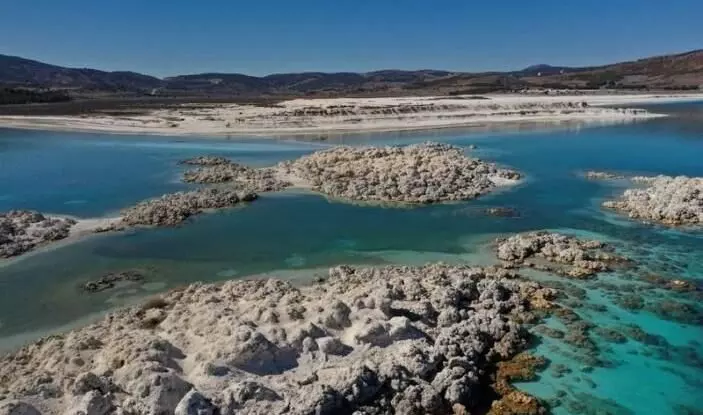
Turkish Lake May Hold Clues to Ancient Life on the Red Planet
text_fieldsA general view of an exposed island of old microbialites at Salda Lake in Burdur province, Turkey, March 1, 2021. | Photo Credit: REUTERS
NASA has announced that the minerals and rock deposits at river Salda in southwest Turkey are the nearest match on earth to those around the Jezero Crater on Mars where NASA's rover Perseverance spacecraft landed.
The crater is believed to have once been flooded with water. Lake Salda contains carbonate minerals and depositional features (deltas) similar to those found at Jezero Crater.
Scientists are aiming to get a better understanding of the microbial and geological processes in the Lake to help guide the search for life at Jezero.
"Salda ... will serve as a powerful analog in which we can learn and interrogate," Thomas Zurbuchen, NASA associate administrator for science, told Reuters
A team of American and Turkish planetary scientists had carried out research in 2019 on the lake, known as Turkey's Maldives to study its shorelines and surrounding area.
According to the scientists, the sediments around the lake eroded from large mounds that are formed with the help of microbes and are known as microbialites. Now the team behind the Perseverance rover is trying to find out whether there are microbialites in Jezero Crater as well.
They are also looking forward to comparing the beach sediments from Salda with carbonate minerals formed from carbon dioxide and water (a key ingredient for life) detected on the margins of Jezero Crater.
"When we find something at Perseverance we can go back to look at Lake Salda to look at both processes, (looking at) similarities but equally important differences that are really between Perseverance and Lake Salda. So we are really glad we have that lake, just because I think it will be with us for a long time," Zurbuchen said.





